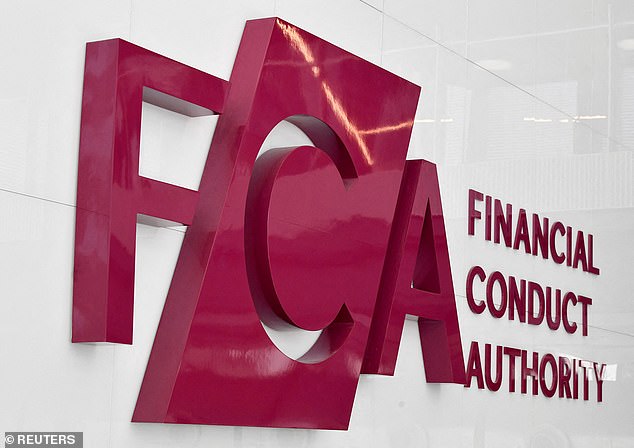- The FCA has written a letter to 42 chief executives of financial services firms
- It believes groups involved in double dipping are not acting out of ‘good faith’
- AJ Bell and Hargreaves Lansdown shares both slumped on Tuesday morning
Britain’s financial regulator is clamping down on investment platforms profiting unfairly on customer cash balances and warned firms against ‘double dipping’.
While investor inflows have weakened this year amid economic uncertainty, platforms have been earning a fortune on the interest on customers’ uninvested cash deposits.
And some firms are even charging customers for holding the cash on their behalf, thereby profiting twice in a practice known as double dipping.
In an open letter to 42 chief executives of investment platforms and self-invested personal pension operators, the Financial Conduct Authority told firms to no longer levy charges on customers for possessing their cash.

Command: The FCA has told investment platforms to stop engaging in ‘double dipping’
It said double dipping is likely to confuse consumers and believes groups engaging in the practice are not acting in ‘good faith’ or ‘consistently with the reasonable expectations of customers’.
The FCA’s letter also expressed concern about how companies treated interest on their customers’ account balances.
More than 70 per cent of firms surveyed by the regulator admitted to keeping some interest earned from cash holdings, with the average platform retaining 50 per cent of the accumulated interest.
The groups often claim that retaining interest on cash is needed to offset the costs of managing the money and dissuade long-term cash allocations in platform accounts.
But the FCA said companies may not be ‘providing fair value to consumers’ if the amount of retained interest ‘significantly exceeds’ operating costs.
AJ Bell and Hargreaves Lansdown recently revealed bumper revenues and profits on the back of interest obtained on customers’ cash, which has grown as the result of Bank of England base rate hikes.
AJ Bell’s pre-tax profit climbed by half to a record £87.7million in the year ending September after turnover rose by a third to £218.2million.
Hargreaves’ pre-tax profits also soared by 50 per cent in the last financial year, increasing to £403million as it received £269million from interest on cash in its investment accounts, compared to just £50million the previous 12 months.
Both companies saw their shares slump on Tuesday morning following the FCA’s announcement.
AJ Bell shares dived 8.7 per cent to 284.4p, and Hargreaves Lansdown shares fell 6.3 per cent to 716.8p.
The FCA wants investment platforms to review their policies on holding interest to ensure they abide by the recently introduced Consumer Duty regulations. All affected companies have until 29 February to implement the necessary changes.
‘Rising rates mean greater returns on cash,’ said Sheldon Mills, executive director of consumers and competition at the FCA.
He added: ‘Investment platforms and SIPP operators need now to ensure how much of the interest they retain and, for those who are double dipping, how much they’re charging customers holding cash, results in fair value.
‘If they cannot make that case, they need to make changes.’
Hargreaves Lansdown said it was ‘aligned with the FCA’s focus to ensure good value and outcomes for clients and undertook a broad and rigorous assessment of its practices including a review of its fair value assessments earlier this year.’
It added that ‘at least’ 90 per cent of the BoE’s base rate rises were passed on to client cash balances in the last financial year and that it does not engage in double dipping.
It went on: ‘We will continue to work actively with the regulator following today’s letter to further review our practices.’











